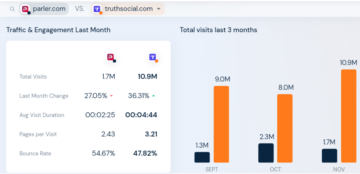
UAE aims to be a global AI leader with plans to lead in regulation, backed by OpenAI CEO Sam Altman’s support, says Minister Omar Al Olama.
OpenAI CEO Sam Altman discussed the possibility of the United Arab Emirates (UAE) becoming a “regulatory sandbox” for artificial intelligence (AI) on the global stage. During a virtual appearance at the World Governments Summit (WGS), he debated the potential for the UAE to act as a testing ground for AI technologies and assist in the development of global regulatory frameworks.
Also read: New Frame Smart Glasses Offer AI-Powered Translations and Web Search
Also, he emphasized the challenge of developing regulatory ideas in isolation and advocated for a pragmatic, hands-on approach to understanding AI’s societal impacts.
UAE minister backs OpenAI CEO Sam Altman’s idea to turn the country into a global leader in AI testing and regulation https://t.co/JCujXrwjLx
— Bloomberg (@business) February 15, 2024
UAE leading in AI regulation
According to Sam Altman, the UAE has the potential to be a pioneer in artificial intelligence legislation. It may provide a haven for the development and testing of AI technology, which could influence and inform future international laws.
However, the UAE is a good choice to lead discussions on AI governance because of its dedication to AI innovation and its advantageous location in the world economy. The UAE is in a unique position to spearhead these conversations because of its strong commitment to advancing AI technology and incorporating it into national policy.
Furthermore, the UAE AI and Blockchain Council was founded in the nation to suggest laws aimed at establishing an ecosystem that is AI-friendly. As part of his dedication to ensuring that the benefits of AI are available to everyone, Altman discussed creating tools for underdeveloped countries that cannot afford the enormous expenses of creating their own AI systems during the WGS.
OMGFIN Daily News
————————-
UAE President Establishes Artificial Intelligence and Advanced Technology CouncilRead More at 👉 https://t.co/y2zb2bPvWI#UAE #AI #AIATC #Cryptocurrency #Bitcoin #Blockchain #Web3 pic.twitter.com/jwmPcO2Xjh
— Omgfin (@omgfin) January 24, 2024
Altman also unveiled OpenAI’s plans to open-source some of its large-language models. They also have plans to develop tools for nations that cannot afford to develop their own AI systems.
AI adoption in the UAE
Additionally, in August, Mastercard said that it had teamed up with the UAE government to promote AI adoption in that country.
Mastercard and UAE Government Team to Promote AI Adoption – https://t.co/iT8MXzt4s2 https://t.co/CT2ipJO0SR pic.twitter.com/VXpltlKz0Q
— Ignition Digital (@IgnDigFound) August 24, 2023
The partnership was announced as Mastercard opened its newest Center for Advanced AI and Cyber Technology in Dubai. According to the company, the center will develop AI-powered financial crime prevention tools, focus on “securing the digital ecosystem and driving inclusive growth,” and act as a hub for fostering and hiring local AI talent.
Additionally, in August, the Mohamed bin Zayed University of Artificial Intelligence (MBZUAI) and G42 subsidiary Inception, a California-based AI research company, debuted their jointly built Arabic language-trained AI software.
Hello! These are the Top 5 Technology News For 30th of Aug 2023.
1. UAE’s G42 launches open-source Arabic language AI model.
A group of engineers, researchers and a Silicon Valley-based chip company collaborated to release advanced Arabic language software that can power
— NdTechResearch (@NdTechResearch) August 30, 2023
Using a specially created dataset of 116 billion Arabic tokens and 279 billion English word tokens intended to capture the complexity and nuance of Arabic, the large language model (LLM) known as Jais was trained for 21 days on a supercomputer co-developed by G42 and Cerebras.
Ethical AI Toolkit in Dubai
Although AI is not yet subject to any particular laws or regulations, Digital Dubai has developed an “Ethical AI Toolkit” that outlines the requirements for AI systems to be intelligible, safe, equitable, transparent, and accountable. Future industry-specific regulations in the UAE and elsewhere may be built upon these standards.
The remarks were made when Altman was looking for local investors for a cutting-edge semiconductor project aimed at advancing artificial intelligence. The UAE has prioritized AI policy and made significant investments in the field, but the US administration is concerned about its ties to China.
- SEO Powered Content & PR Distribution. Get Amplified Today.
- PlatoData.Network Vertical Generative Ai. Empower Yourself. Access Here.
- PlatoAiStream. Web3 Intelligence. Knowledge Amplified. Access Here.
- PlatoESG. Carbon, CleanTech, Energy, Environment, Solar, Waste Management. Access Here.
- PlatoHealth. Biotech and Clinical Trials Intelligence. Access Here.
- Source: https://metanews.com/openais-sam-altman-sees-uae-as-a-potential-global-center-for-ai-regulation/
- :has
- :is
- :not
- $UP
- 116
- 125
- 13
- 15%
- 2023
- 24
- 30
- 30th
- 7
- a
- About
- According
- accountable
- Act
- administration
- Adoption
- advanced
- Advanced Technology
- advancing
- advantageous
- AI
- AI governance
- ai research
- AI systems
- AI-powered
- aimed
- aims
- AL
- also
- an
- and
- announced
- any
- approach
- Arab
- Arab Emirates
- arabic
- ARE
- artificial
- artificial intelligence
- Artificial intelligence (AI)
- AS
- assist
- At
- Aug
- AUGUST
- available
- backed
- backs
- BE
- because
- becoming
- benefits
- Billion
- BIN
- Bloomberg
- built
- but
- by
- CAN
- cannot
- capture
- Center
- ceo
- challenge
- China
- chip
- choice
- collaborated
- commitment
- company
- complexity
- concerned
- conversations
- could
- Council
- countries
- country
- created
- Creating
- Crime
- cutting-edge
- cyber
- daily
- Days
- debuted
- dedication
- develop
- developed
- developing
- Development
- digital
- digital ecosystem
- discussed
- discussions
- driving
- Dubai
- during
- economy
- ecosystem
- elsewhere
- emirates
- emphasized
- Engineers
- English
- enormous
- ensuring
- equitable
- establishes
- establishing
- everyone
- expenses
- field
- financial
- financial-crime
- Focus
- For
- fostering
- Founded
- FRAME
- frameworks
- future
- Global
- good
- governance
- Government
- Governments
- Ground
- Group
- Growth
- had
- hands-on
- Have
- haven
- he
- Hiring
- his
- HTTPS
- Hub
- idea
- ideas
- Ignition
- Impacts
- in
- inception
- Inclusive
- incorporating
- industry-specific
- influence
- inform
- Innovation
- Intelligence
- intended
- International
- into
- Investments
- Investors
- isolation
- IT
- ITS
- known
- language
- large
- launches
- Laws
- lead
- leader
- leading
- Legislation
- LLM
- local
- location
- looking
- made
- mastercard
- May..
- model
- models
- Mohamed
- more
- nation
- National
- Nations
- Newest
- news
- Nuance
- of
- offer
- omar
- on
- open source
- OpenAI
- opened
- or
- outlines
- own
- part
- particular
- Partnership
- pioneer
- plans
- plato
- Plato Data Intelligence
- PlatoData
- policy
- position
- possibility
- potential
- pragmatic
- president
- Prevention
- prioritized
- project
- promote
- provide
- Read
- Regulation
- regulations
- regulatory
- release
- Requirements
- research
- researchers
- s
- safe
- Said
- Sam
- Sam Altman
- says
- sees
- semiconductor
- significant
- Silicon
- smart
- Smart glasses
- societal
- Software
- some
- spearhead
- specially
- Stage
- standards
- strong
- subject
- subsidiary
- suggest
- Summit
- supercomputer
- support
- Systems
- Talent
- team
- teamed
- Technologies
- Technology
- technology news
- Testing
- that
- The
- the world
- their
- These
- they
- Ties
- to
- Tokens
- toolkit
- tools
- top
- top 5
- trained
- transparent
- true
- TURN
- UAE
- understanding
- unique
- university
- unveiled
- upon
- us
- Virtual
- was
- web
- were
- when
- which
- will
- with
- Word
- world
- yet
- zayed
- zephyrnet













